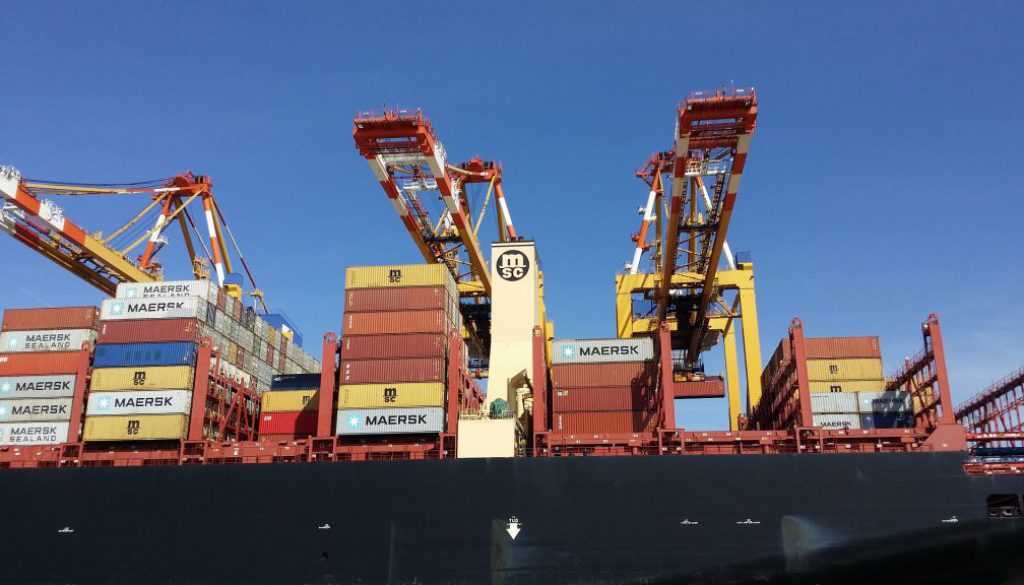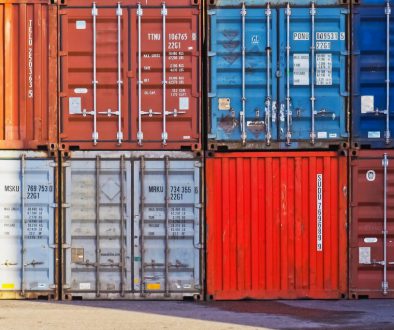How do we pay for the products and services we need? Money, yes, but bearing in mind that money is a medium of exchange, what are we really paying for? We pay for them with production. To be able to consume, you must first produce.
A simple example:
Suppose I’m a hairdresser and want to buy some buns. I can go to the grocery store and offer to buy some buns in exchange for a new haircut for the store owner. Maybe I can even do it if the owner needs such a service. However, it may turn out that the owner of the store is a bald man, and then my service will be worthless to him. For this reason, money is a useful medium of exchange. I provide hairdressing services, for example for Mrs. Joli, and for the money I earn I buy rolls.
But let this not obscure the picture. I still buy buns for my hairdressing services. I produce a service and my production enables me to consume the rolls. The fact that money is mediated in exchange does not change the basic fact that in order to buy something, we first have to sell something.
Such an exchange, when voluntary, is of course beneficial to both parties. If it wasn’t, nobody would be involved in it. As a hairdresser, I like the fact that I can focus on providing services in which I am good and efficient, and I leave the matter of baking rolls to specialists in this field. The bald shop owner does not need my services, but he spends the profits from his production on other goods important to him. For example, it turns out that Mrs. Jola, who has used my service, produces a hair growth fluid, which the shop owner regularly buys from her. Thanks to trade, me, Mrs. Jola and the bald shopkeeper, we got what we want cheaper than if we were to do it ourselves.
So what is import and export? Import is a purchase transaction and export is a sale transaction. The only reason we have separate names for them is because they are held between individuals from different countries. However, the laws of economy do not change with crossing the border of an area. We still have to pay for consumption with production, and still voluntary exchange is beneficial to both sides. In simple terms, we use exports to pay for imports.
You’ve probably heard the claim that exports are more important than imports. But let’s go back to the example of a hairdresser. What do I care about as a hairdresser? Do I care about doing more hairstyles than consuming buns? Is production my goal? Of course not. I would like to lie belly up on the beach and I would like rolls to be pushed under my nose. My goal is consumption, not production. Production is only a means to an end. So our goal is to import, because that means buying all the cool stuff from overseas. Export is the “necessary evil” that allows us to pay for this import. If we could constantly import without having to export, so much the better for us! However, this is not possible.
There are two countries. One is in the far north and the other is in the far south. Suppose they are not in contact with each other. The northern country is great at producing spruce planks, but it also needs oranges, so some of the units, incurring huge expenses, built greenhouses and created the right conditions for growing oranges. The southern country of oranges has plenty, they grow everywhere without having to create additional conditions for them. The moment comes when these two countries establish trade contacts. The market of the northern country is suddenly flooded with cheap oranges. Oranges from the south, even after paying for transport, are half the price, but also much tastier than sour greenhouse oranges from the north. It is clear that access to half-cheaper fruit is beneficial for everyone. Well, almost everyone. Of course, the northern orange producer will be dissatisfied. He will try to push through customs duties in the name of protecting domestic business. He will try to argue that 500 people employed in his company will suddenly lose their jobs. He will prove that the competition from the south is unfair because they have more sun than the people from the north. These and other arguments are probably familiar to you after reading Bastiat’s brilliant Candle Manufacturers’ Petition, which we posted on our website on Wednesday.
If the orange producer would push through his demands and the southern oranges would be taxed, he would benefit, but all consumers would lose. After all, the import only started because the production of oranges in the southern country is more profitable. In this situation, all consumers would subsidize the inefficient domestic producer by buying oranges more expensive. At the same time, human capital, i.e. the employees of his company, would be frozen in ineffective activities, which would hinder the development of effective industries that want to expand their activities and need employees. Put simply, limited resources would be wasted on unprofitable production. Resources that could bring much more added value elsewhere. Whether it is an individual or a city, state or country, it is a blessing to be able to buy something cheaper than it is able to produce on its own.
With that in mind, let’s move on to protectionism.
Consider this point: we all know that sanctions are imposed on it to harm a country. However, for some reasons, the imposition of tariffs and trade restrictions, and thus in effect imposing trade sanctions on oneself, are considered positive by many. We will stimulate internal demand, they say. Is this thinking justified?
Yes, it is true that in the absence of a duty, an ineffective manufacturer will have trouble because his business will collapse and he will have to retrain. However, we notice the same on a smaller scale. In a given city, or even a given district, a more effective producer may also emerge, and a less effective producer will lose their job and have to do something else. What producer is interested in, whether it has been squeezed out of the market by domestic or foreign competition? Nothing. Consumers are also not interested in it. It is important for them that they receive a cheaper and better product. Thanks to this, their standard of living will increase, because they will be able to afford to buy more goods with the money saved. And this is an opportunity for a producer who has lost his job. It can start to meet the needs that have not been met so far, because people could not afford it. Consequently, import destroys one job and creates another in another place. Free trade increases the wealth of both parties to the transaction. When we consider that exchange is positive at the level of individuals, we cannot consider that the sum of positive exchanges between individuals can have a negative effect. The imposition of tariffs and restriction of free trade will always have negative economic consequences. On the other hand, participation in the international division of labor will increase our standard of living.
There is, however, a question worth asking yourself. Can we make our production more competitive in relation to other countries? Partly yes. As Jan Jakub Tyszkiewicz writes in his perversely titled article “Our enemy, import”:
“Factors that make it more profitable to produce a given good can be divided into two types: interventionist and market.”
Just as free-market factors are difficult to change, such as the amount of raw materials, geographic location or, for example, the tradition of producing something, it is easier in the case of interventionist factors that limit productivity. These include: all market regulations, taxes and other burdens, the influence of trade unions on legislators, etc. We are not able to change the fact that our country is not an oil tycoon due to the small amount of this raw material, but we are able, with good the will of those in power, minimize any barriers to productivity caused by government interference in the market. We will still not be able to produce everything in this situation, due to factors beyond our control, but we will certainly be more efficient in production. Therefore, the response to Poland’s better position on the international market is not more regulation, but less. With good business conditions, we will be able to compete better with foreign companies where possible, without any additional support from the state.


